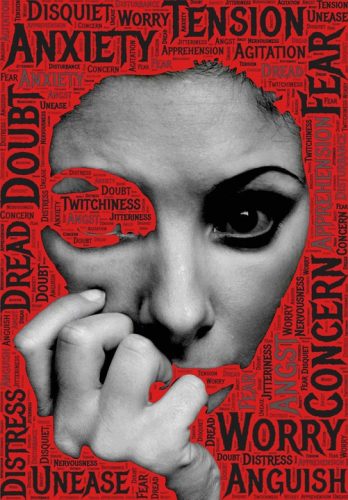
When we talk about stress, we often generalize it as a problem that we need to solve in tons of different ways. It affects things such as school, work, environment, people, and personal struggle. According to Aarti Gupta, PsyD, “A little bit of stress is totally normal—and can actually be a good thing.” However, when you’re in a relationship, the degree of stress is somehow different from those mentioned. Eventually, you will experience a kind of pressure that is not even brought by something and feels like it’s just sort of there. That’s where you’ll figure out that anxiety is present.

A Life With Anxiety
According to Nancy B. Irwin, PsyD, “Depression and anxiety are like flip sides of the same coin, says therapy. Being depressed often makes us anxious, and anxiety often makes us depressed.” If it turns out that you have both conditions, there are lots of ways to get help.”
Anxiety can affect your everyday life especially when you are in a relationship because it requires a lot of mental and emotional attention. It is where you tend to experience an excessive, persistent, and unreasonable apprehension about everything. Although you might seem to understand your condition, there’s something in your mind that tells you that you’re not in control and there’s no way you can stop it. Therefore, the situation will somehow make you feel helpless and uninspired to do the things that you’re supposed to do.
In addition to having too many worries or anxiety, symptoms of restlessness and irritability are present. You may feel the lack of thoughts and difficulties in concentration which will eventually complicate your relationship with your partner due to unattended mood changes. In severe cases, you may also experience panic attacks and sudden aggression that can merely start an argument.
Generally speaking, most people experience problems in determining the cause of their anxiety, and they usually blame past incidents on that matter. Though some of the cases are true, the condition still tackles a broad idea because anxiety disorder is not limited to specific reasons alone such as your psychological, emotional, or behavioral aspects. It is a combination of your overall wellbeing.
Here’s a final note from Marcia Reynolds, PsyD: “Take time to re-acquaint yourself with you. Then you might vision what you want for your future so you can align your daily actions, experiences and learning with this focus in mind. ”

The Required Treatment
Anxiety disorder can be treated in a variety of ways. However, the most common treatment is medication. People who are experiencing anxiety as a mental health disorder are given a prescription to take antidepressants that are useful in elevating their mood because it contributes to the regulation of the serotonin levels in the brain. Also, a psychoactive drug called benzodiazepine is another medication option due to its calming and relaxing effect. Though these medications are quite effective, unwanted effects such as drug dependence, tolerance, and withdrawal are something that requires consideration.
On the other hand, psychotherapy is also helpful as well. It is a process that teaches a person to behave and think differently. It encourages them to use their mental strength to react more appropriately in addressing issues about their relationships that affect their emotional state. Compared to medication, psychotherapy or cognitive behavior therapy creates a long-term advantage.
When it comes to your relationship and mental condition, there are a lot of things you need to understand because sometimes when you over-think about your situation, you might end up pushing people away. When you feel that stress and anxiety are not helping you with anything at all, make time to consider asking for professional help.